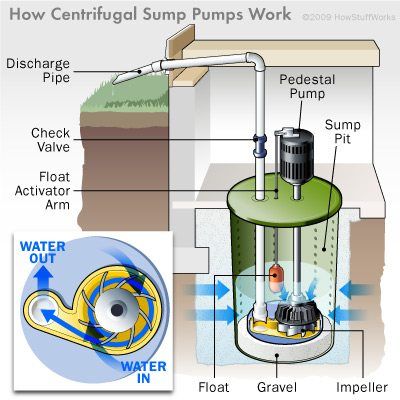Specialist Pump Repairs & Installation Services: Enhancing Your Water supply's Performance
Specialist Pump Repairs & Installation Services: Enhancing Your Water supply's Performance
Blog Article
Recognizing the Key Parts of Effective Water Filtering Systems

Importance of Water Filtration Solution
Water filtering systems play a vital function in making sure access to tidy and secure alcohol consumption water by effectively getting rid of contaminants and contaminations. These systems are vital in resolving the expanding concerns over water top quality and the possible health risks connected with taking in polluted water. By utilizing different filtration mechanisms such as reverse osmosis, turned on carbon, and UV sanitation, water purification systems can successfully get rid of dangerous substances like microorganisms, infections, heavy metals, and chemicals from the water.
Additionally, water filtering systems help to enhance the preference and odor of water by getting rid of chlorine, debris, and other contaminants that can affect its top quality. Water Softeners. This improvement in water top quality not only makes it much more tasty yet also encourages people to consume an ample quantity of water daily, promoting better hydration and overall health
Sorts Of Purification Elements

Physical filters are created to literally strain out pollutants from the water. These filters can be made from products like ceramic, carbon, and even sand, and they function by trapping bits larger than the filter's pores as water travels through.
Chemical filters use numerous chemical processes to get rid of contaminants from the water. Examples consist of activated carbon filters, which adsorb contaminations, and turn around osmosis membrane layers, which use stress to separate impurities from the water.
Organic filters utilize living microorganisms like bacteria or algae to break down raw material and pollutants in the water. These filters are frequently utilized in wastewater treatment plants or all-natural water purification systems.
Understanding the various kinds of filtration elements is crucial for picking one of the most appropriate water filtering system for details filtration demands.
Feature of Sediment Filters
Debris filters play an essential role in water purification systems by effectively catching solid fragments suspended in the water. These filters are typically the very first line of defense in a purification system, getting rid of larger bits such as sand, silt, dust, and corrosion prior to the water moves with finer filtering stages. By capturing these debris, the filters avoid them from reaching downstream elements, therefore extending the life-span and efficiency of the entire system.
The function of debris filters is important in maintaining water quality and safeguarding delicate tools from damage triggered by debris. Additionally, by getting navigate to this website rid of visible fragments, debris filters boost the clearness and taste of the water. Routinely replacing or cleaning debris filters is necessary to make certain optimum efficiency. Ignoring this maintenance can result in obstructing, minimized water circulation, and jeopardized filtration effectiveness. Overall, sediment filters are indispensable parts that add substantially to the effectiveness of water purification systems.
Role of Turned On Carbon Filters
Playing an essential function in water filtration systems, turned on carbon filters are instrumental in removing impurities and impurities from the water supply. As water passes with the filter, the turned on carbon holds and brings in onto the pollutants, making sure that the water that comes out on the various other side is cleaner and much safer for consumption.
Activated carbon filters are highly efficient at enhancing the preference and odor of water by decreasing chemicals that can influence its high quality. Due to their versatility and dependability, triggered carbon filters are a key component in making certain that water is detoxified to the highest possible requirements before reaching customers.
Comprehending Reverse Osmosis Equipments
Reverse osmosis systems are sophisticated water filtering systems that employ a sophisticated process to eliminate contaminants and impurities from drinking water. These systems function by applying stress to the water, forcing it via a semi-permeable membrane. This membrane read what he said acts as an obstacle, enabling only distilled water particles to pass through, while blocking bigger molecules such as minerals, chemicals, and other contaminations. As a result, the water that appears beyond is significantly cleaner and safer for consumption.
Additionally, reverse sites osmosis systems are fairly low-maintenance and can be mounted under the sink or in a central purification system, supplying convenient access to tidy water throughout the house. Overall, understanding exactly how reverse osmosis systems function can aid individuals make educated decisions about their water filtering requirements.
Final Thought
In conclusion, reliable water filtration systems are crucial for making sure clean and risk-free drinking water. By comprehending the feature and duty of each component, people can make educated choices when choosing a water filtering system.
Water filtering systems play an important function in making certain accessibility to safe and clean drinking water by efficiently eliminating contaminations and pollutants. By using numerous purification devices such as reverse osmosis, triggered carbon, and UV sterilization, water filtration systems can effectively remove harmful substances like bacteria, viruses, hefty metals, and chemicals from the water supply.
Debris filters play a crucial function in water purification systems by effectively recording solid bits put on hold in the water (Pump repairs & installation).Playing a critical duty in water filtration systems, activated carbon filters are important in eliminating impurities and impurities from the water supply.Reverse osmosis systems are innovative water filtering systems that employ an innovative process to get rid of pollutants and contaminations from drinking water
Report this page